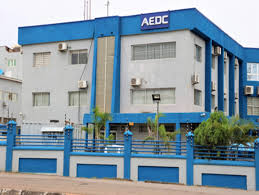UN Report Accuses Rwanda and Uganda of Fueling Conflict in Eastern DRC

A confidential United Nations experts’ report has accused Rwanda of exercising command and control over the M23 rebel group in eastern Democratic Republic of the Congo (DRC) and alleged that Uganda has unilaterally doubled its military presence in the region without Kinshasa’s consent.
The yet-to-be-published report, which was submitted to the UN Security Council in May and reviewed by Al Jazeera and other media outlets, paints a grim picture of escalating regional tensions, widespread human rights violations, and economic exploitation in mineral-rich eastern Congo.
Rwanda’s Alleged Role and Mineral Looting
According to the UN experts, Rwanda:
- Provides “critical military support” to M23, which operates under “direct instruction” from Kigali’s political and military leadership.
- Deploys troops alongside M23 fighters, enabling their rapid territorial gains, including the capture of Goma and Bukavu earlier this year.
- Orchestrates illegal extraction of natural resources, particularly coltan and other minerals, from areas controlled by M23.
These resources are reportedly smuggled into Rwanda, mixed with locally mined minerals, and exported globally under false origins, a practice the UN calls “mineral laundering”.
The report states that Rwanda’s involvement “meets the threshold for international liability” and could trigger sanctions for state sponsorship of armed groups.
However, President Paul Kagame dismissed the allegations as “biased and unfounded,” accusing the UN of ignoring the security threat posed by the Democratic Forces for the Liberation of Rwanda (FDLR), an armed militia linked to perpetrators of the 1994 Rwandan genocide.
Uganda’s Military Expansion
The UN report also implicates Uganda, alleging:
- The Uganda People’s Defence Forces (UPDF) have doubled their presence in North Kivu and Ituri provinces, operating unilaterally outside existing joint agreements with Kinshasa.
- Ugandan troop movements have created a buffer zone that indirectly shields M23 from northern counter-offensives by the Congolese army.
Uganda defended its operations, saying they were aimed at neutralizing the Allied Democratic Forces (ADF), a Uganda-linked rebel group active in eastern Congo.
Ugandan Ambassador Adonia Ayebare described the UN findings as “falsehoods,” while army chief Gen. Muhoozi Kainerugaba accused the UN experts of bias, saying, “While they write their reports, we continue saving lives in the region.”
Kinshasa and Wazalendo Militias

The report also criticizes the Congolese government for:
- Relying on irregular militias known as Wazalendo, and on the FDLR, to fight M23 and Rwandan forces — despite UN sanctions on some of these groups.
- Turning a blind eye to atrocities committed by these militias, including reprisal killings, sexual violence, child soldier recruitment, and looting in areas recaptured from M23.
“These abuses occurred in a climate of impunity and reflect the weakening chain of command within the Congolese army,” the report states.
Regional Dynamics and Hidden Agendas
Experts believe the renewed conflict is driven not only by security concerns but also by economic interests in Congo’s vast mineral reserves.
Kristof Titeca, a researcher at the University of Antwerp, told Al Jazeera:
“Kigali and Kampala have overlapping ambitions in eastern DRC. They cooperate at times but also compete fiercely over influence, trade routes, and access to minerals.”
Analysts say Uganda’s recent troop surge may be a reaction to Rwanda’s growing dominance via M23, raising fears of a proxy war between the two countries inside Congo.
Humanitarian Toll and Global Concern
Since the resurgence of M23 in 2024:
- Over 321 people have been killed in the latest clashes in North and South Kivu.
- Thousands of civilians have been displaced, with reports of mass killings, rape, and forced recruitment of children by all sides.
- The UN warns that humanitarian access is severely restricted in many areas due to insecurity.
Volker Turk, UN Human Rights Chief, called the situation “a human catastrophe”, urging all parties to stop violations of international humanitarian law and allow aid delivery.
Peace Efforts Under Strain
The revelations in the UN report threaten to derail recent US-brokered peace agreements and Qatar-mediated dialogue between Kinshasa and M23.
While Rwanda and Uganda have dismissed the findings, civil society groups insist the report underscores the need for regional accountability mechanisms and stricter sanctions against those fueling the conflict.




